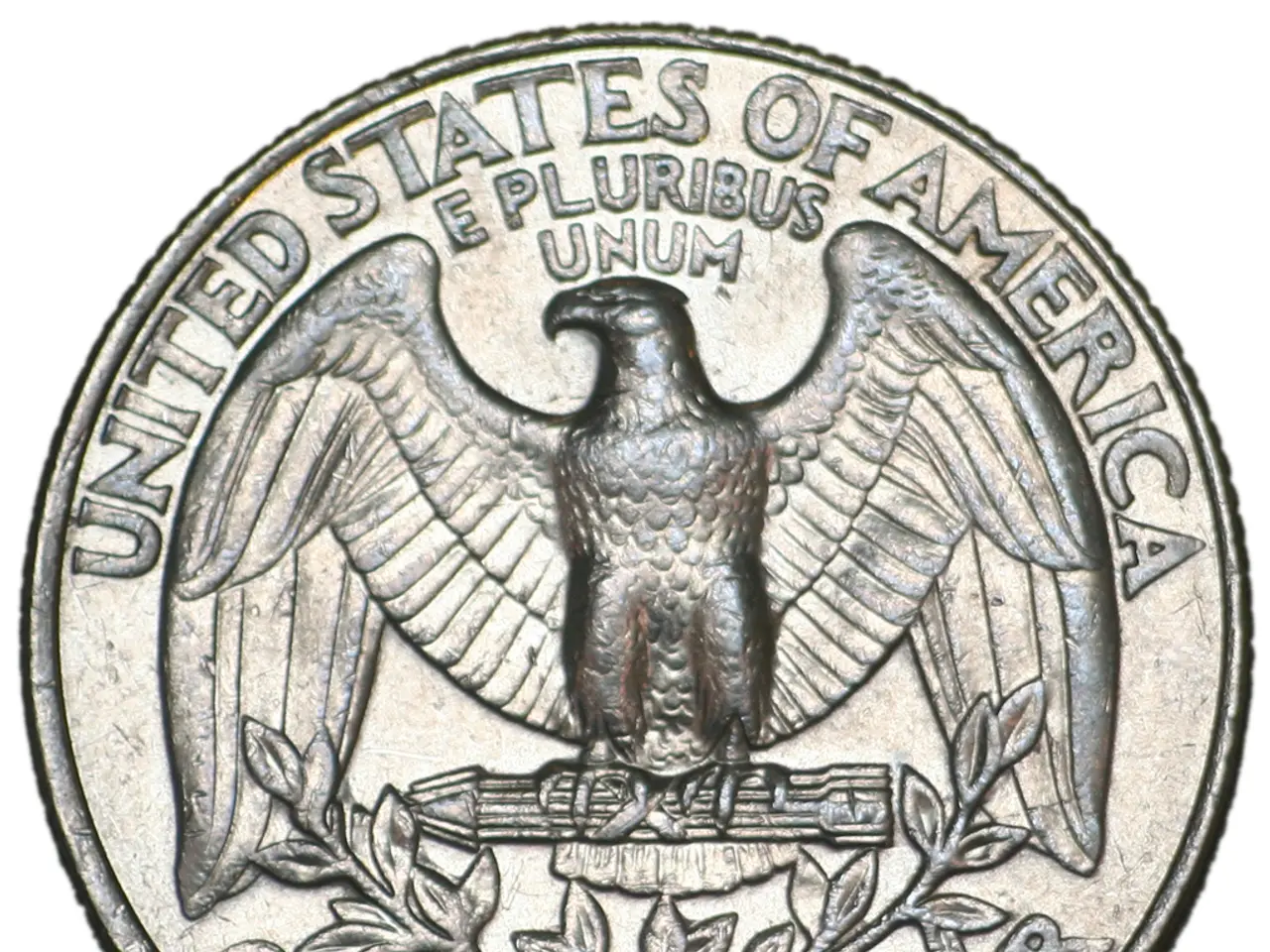Trump reaffirms his stance on tariffs, likening them to medicine, amidst market turmoil
President Donald Trump's announcement of sweeping tariffs on imports from most of the world has sent financial markets reeling, raising fears of a potential recession and upending the global trading system.
Initially, global markets responded negatively to the tariffs, with sharp declines in U.S. and European stock markets and notable losses in specific sectors like healthcare. For instance, after the executive order imposing duties on imports from countries including Canada, pan-European indexes fell about 1%, and companies such as Denmark's Novo Nordisk saw significant stock drops. However, the U.S. dollar strengthened to its highest level in three years, reflecting investor confidence that tariffs had not yet severely impacted the U.S. economy or inflation.
The tariffs notably increased import duties on several key trading partners. China faced tariffs as high as 145%, prompting retaliatory tariffs up to 84% on U.S. goods and raising concerns about a trade war that could push the global economy toward recession. The U.S. also imposed a 30% tariff on South African exports after failure to finalize a trade agreement by a deadline, particularly impacting sectors like automotive which employ many workers and risking substantial job losses there.
Regarding negotiations, the Trump administration initially set a 90-day pause on raising tariffs for many countries to conclude trade deals. However, this deadline was extended to early August 2025 to allow more time for negotiations, reflecting the complex and slow nature of trade deal-making and a desire to avoid further negative market reactions. Some countries have agreed to or nearly finalized trade and security agreements with the U.S., but others have either not engaged significantly or proposed terms that the administration deemed insufficient in addressing national security and economic concerns.
As a result, an executive order modified reciprocal tariff rates by listing certain countries subject to specific tariffs, while others remained at a 10% general tariff. The EU, for example, paused retaliatory tariffs in hopes of reaching a negotiated deal following the Trump administration's tariff adjustments.
Vietnam, a major manufacturing center for clothing, has been in touch with the administration about the tariffs. In Congress, there is significant unease about the tariffs, with several Republican senators supporting a new bill that would require presidents to justify new tariffs to Congress and have them approved within 60 days. Nebraska GOP Rep. Don Bacon plans to introduce a House version of the bill, stating that Congress needs to restore its powers over tariffs.
Economist Lawrence Summers, Elon Musk, and Peter Navarro have appeared on various television news shows to discuss the tariffs. Summers stated that if other countries eliminate their tariffs, and the U.S. does, too, "it's just making a deal, then we don't raise any revenue nor do we get any businesses to relocate to the United States." Musk expressed a desire for a zero-tariff situation between the U.S. and Europe, drawing a rebuke from White House trade adviser Peter Navarro.
Trump indicated he disagreed with Musk, saying the European Union needs to pay a lot of money on a yearly basis to talk. Trump also said he won't back down on the tariffs unless countries even out their trade with the U.S.
As the tariffs continue to roil the markets, Asian shares nosedived after the tariffs were announced. U.S. stock futures dropped significantly, and there is concern about the potential long-term effects on the global economy. In the midst of these challenges, countries are scrambling to figure out how to respond to the tariffs, with China and others retaliating quickly.
Gomez Licon reported from Fort Lauderdale, Florida, and Giada Zampano in Rome contributed to this report.
[1] Source: CNBC, 8 March 2018 [2] Source: Reuters, 8 March 2018 [3] Source: The Hill, 8 March 2018 [4] Source: Politico, 8 March 2018
- The reality of potential recession and the upending of the global trading system is a concern as President Donald Trump's announced tariffs have caused financial markets to plunge, with impacts on business sectors like healthcare.
- The U.S. dollar exhibited strength in response to the tariffs, suggesting investor confidence in the American economy; however, key trading partners such as China and South Africa are implementing retaliatory tariffs, causing apprehension about a devastating trade war.
- In an effort to avoid further market disruptions and possibly escalating trade conflicts, the Trump administration extended the deadline for resuming trade negotiations to early August 2025, while also modifying reciprocal tariff rates for certain countries.
- Congress is responding to the tariffs with bills that aim to restore congressional powers over tariffs, such as a requirement for presidents to justify new tariffs and have them approved within 60 days. Notable political figures like Lawrence Summers, Elon Musk, and Peter Navarro are actively engaging in discussions on television news shows about the tariffs and their potential effects on the economy, media, and politics.




